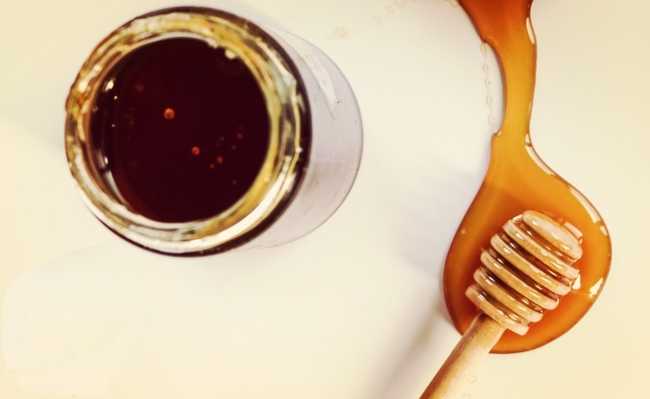What is maple syrup and what is it for?
Maple syrup is an alternative to white sugar and bee honey that can be used in various dishes.

Edited and resized image by Danika Perkinson is available on Unsplash
Maple syrup is a popular natural sweetener reputed to be healthier and more nutritious than white sugar and a vegan alternative to bee honey. But is he really healthy? Check out:
- Vegan philosophy: know and ask your questions
What is maple syrup?

Edited and resized image by Eliška Motisová is available on Unsplash
Maple syrup , better known in the world as maple syrup , is the circulating sap of maple trees . Despite the name being little known, the leaf of this tree is quite famous, as it is present on the national flag of Canada, being considered an emblem of the country. More than 80% of maple syrup production comes from the province of Quebec, Canada, and takes place in two stages:
- A hole is drilled in a maple tree so that its sap falls into a container;
- The sap is boiled until most of the water evaporates, forming a thick, sugary syrup, which goes through a filtering process to remove its impurities.
The final product can be used to sweeten a variety of dishes, such as pancakes, cakes, drinks, pies and other sweets.
Different degrees of intensity
Maple syrup is characterized by different degrees of intensity and can be identified by color, although the classification may vary from country to country.
In the US, maple syrup is classified as grade A or B, where grade B is the darkest syrup, and grade A, being lighter than B, is further divided into three other groups: light amber, amber medium and dark amber.
The darker syrup is made from the sap extracted from the later harvest. This type has a stronger maple flavor and is most commonly used in baked goods, while the milder maple syrup is used to accompany foods such as pancakes.
When purchasing Maple syrup , keep an eye on the label to make sure it's real maple syrup, as it could be another similar product loaded with white sugar or transgenic corn syrup. Learn more about this topic in the articles: "Transgenic corn: what it is and what are its risks" and "Corn and fructose syrup: tasty, but careful".
Despite being high in sugars, it contains vitamins, minerals and a low glycemic index.
The difference between maple syrup and white sugar is its vitamin and mineral content and its low glycemic index.About 1/3 cup (80 ml) of Maple syrup pure contains:
- Calcium: 7% of the IDR
- Potassium: 6% of the IDR
- Iron: 7% of the IDR
- Zinc: 28% of the IDR
- Manganese: 165% of the IDR
Although maple syrup provides a fair amount of some minerals, especially manganese and zinc, it is high in sugar, and too much sugar can be harmful. Sugar and other refined foods are the main causes of some of the world's biggest health problems, including obesity, type 2 diabetes and heart disease (see studies on this here: 3, 4, 5).
About two-thirds (80 ml of 100 ml) of the maple syrup is sucrose, and the remaining one-third provides 60 grams of sugar.
On the other hand, despite being high in sugar, the glycemic index of maple syrup is around 54, while that of white sugar is 65. This means that consuming maple syrup raises blood sugar more slowly than the common sugar, delaying the feeling of hunger, being a healthier alternative.
- Is sugar the new tobacco?
It's rich in antioxidants
In addition to these characteristics of maple syrup, it has 24 different types of antioxidants, according to a study - being the darker grade types with the highest amount of antioxidants. These substances reduce oxidative damage, which is responsible for causing diseases such as cancer.
- Antioxidants: what are they and in what foods to find them
One study estimated that replacing dietary refined sugar with alternative sweeteners such as maple syrup increases total antioxidant intake as much as eating a single serving of nuts.
Active compounds in maple syrup help reduce the growth of cancer cells and may slow down the breakdown of carbohydrates in the digestive tract (see studies on this here: 6, 7, 8, 9, 10).
The problem is that most studies about the Maple syrup they are sponsored by the product's manufacturers, which casts doubt on the credibility of the results. Therefore, consume maple syrup in moderation, just as if it were a common white sugar.
Adapted from Healthline, ScienceDirect, GlycemicIndex, Wikipedia and NutritionData










